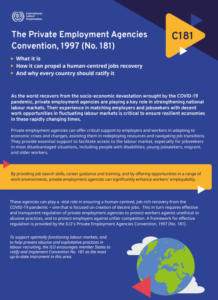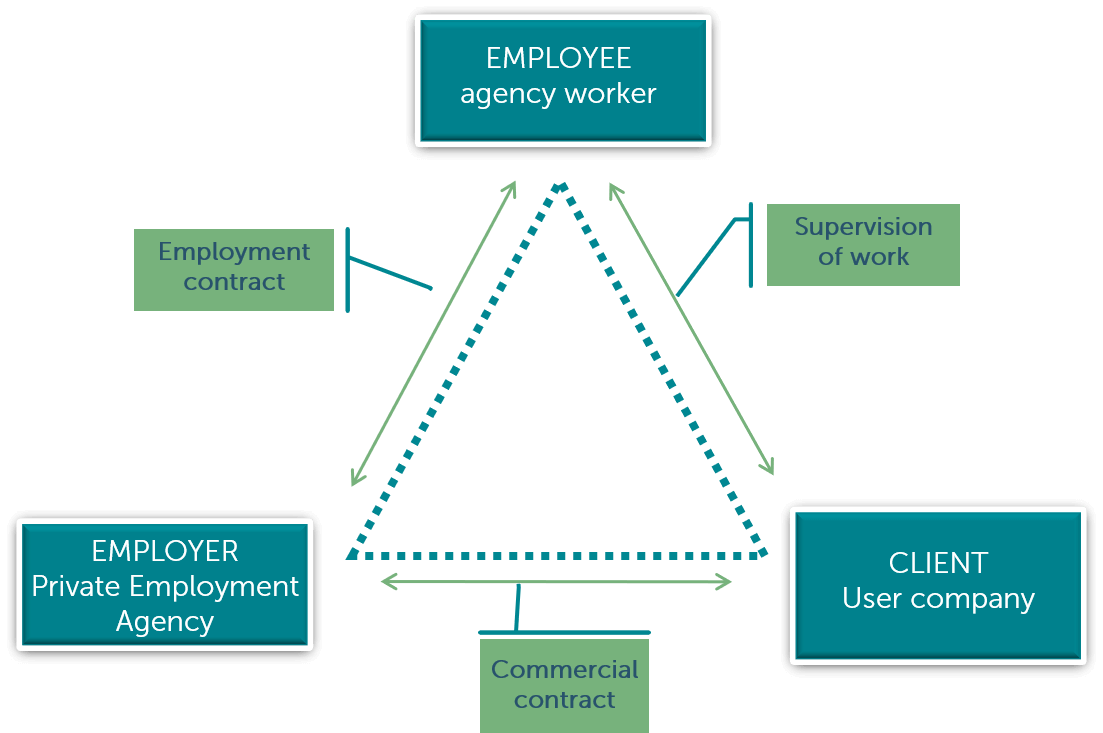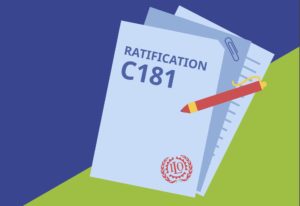Agency work is an internationally recognised and regulated form of employment. The agency worker has an employment contract with the employment agency. They are then deployed to a user firm and work under the guidance and supervision of the user company.
This “triangular employment relationship” improves allocation within the labour market. It allows workers to gain easy access to work and different work experiences as well as to combine work with other life choices and responsibilities. By using agency work, businesses can quickly find new workers and easily expand human resources when needed.
The promotion and creation of quality agency work requires a regulatory framework that is conducive to its growth. Although each country is different, some elements are key in achieving an appropriate regulatory framework. These elements are reflected in the Convention on Private Employment Agencies (No. 181) and the Private Employment Agencies Recommendation (No. 188) adopted by the International Labour Organisation (ILO). They include among others:

Check out this ILO’s fact sheet to better understand:

 The World Employment Confederation is a strong promoter of appropriate regulatory frameworks and works with the ILO, individual countries and international stakeholders to promote the implementation of these key elements into national legislation as well as in the ILO Convention 181 itself. The World Employment Confederation has developed several documents explaining the benefits of ratifying Convention 181 and supporting its implementation by countries. In 2022 and 2023, the World Employment Confederation also supported a campaign run by the ILO to expand the ratification of Convention 181 by organising webinars with its members.
The World Employment Confederation is a strong promoter of appropriate regulatory frameworks and works with the ILO, individual countries and international stakeholders to promote the implementation of these key elements into national legislation as well as in the ILO Convention 181 itself. The World Employment Confederation has developed several documents explaining the benefits of ratifying Convention 181 and supporting its implementation by countries. In 2022 and 2023, the World Employment Confederation also supported a campaign run by the ILO to expand the ratification of Convention 181 by organising webinars with its members.